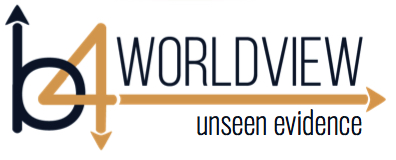
Key Thought for this session:
“My worldviews are what make me think, feel, and act as I do.”
Isn't it amazing the many different ways a situation, action, or statement can be interpreted - all because of varying worldviews lying deep beneath the surfaces of our thinking? How can we discover the correct way to look at a situation? What is the correct worldview to have when confronted with a diversity of expert opinions? This is a great example of our challenge in this course...to open up our minds to possibilities beyond even the good ideas we already have. Like we just discussed, some experts point out it is good practice for leaders to show examples to others on how to do their jobs. Also, DUTY can be a strong motivator. But real power occurs when the motivation of followers is not from duty, and not because the follower mimics the leader, but from a compelling desire to act because the leader’s heart has now become their own.
Consider Mother Theresa, who was a leader that had the vision and mission to feed the poor in India. Her followers were more likely to feed the poor than not when she, the leader, showed them how to do it. This motivational technique is called “modeling the desired behavior”. It is also true that her followers were likely to feed the poor from a sense of duty at times when they really did not feel like it. However, the best result occurred when the followers actually felt the same passion for the plight of the poor that she felt. Their desire to feed the poor then became an internal motivation that the followers owned for themselves. The follower’s response to the poor is best when the follower is TRANSFORMED in this way by the leader.
Even more powerfully, as the follower receives an act of service from the leader... who has more authority and privilege than the follower... commitment occurs as the follower’s passion turns toward the heart of the leader.
Being a follower always involves some kind of obligation (or duty) to the leader.
But there is more than one kind of obligation, and one’s “worldview of obligation” must recognize the difference.
In the leader-follower relationship the follower can feel obligated to the leader because he or she feels required to meet the expectation of the leader. Or the follower can feel obligated to the leader because the follower feels exactly about the mission as the leader does. A compelling desire to do something... is more freeing and more purposeful than a desire that comes from viewing obligation as a requirement or a duty.
One type of obligation responds to the internal voice “I should do this” and the other responds to the internal voice that says, “I want to do this.” Research has shown that when obligation is an act of duty, people experience the burden of their commitment. But:
When followers personally experience the leader’s sacrificial service on their behalf, they want to embrace the passion of the leader as their own—with the result being that there is less stress and exhaustion as they fulfill their obligation to the leader.
I mean really...would it be easier for you to follow a leader who genuinely cares about you and consistently makes sacrifices on your behalf, or would you rather follow a task-master that says, “My way or the hi-way?”
Right?! So, these are good things to be thinking about. Let’s take a break with a quick question.